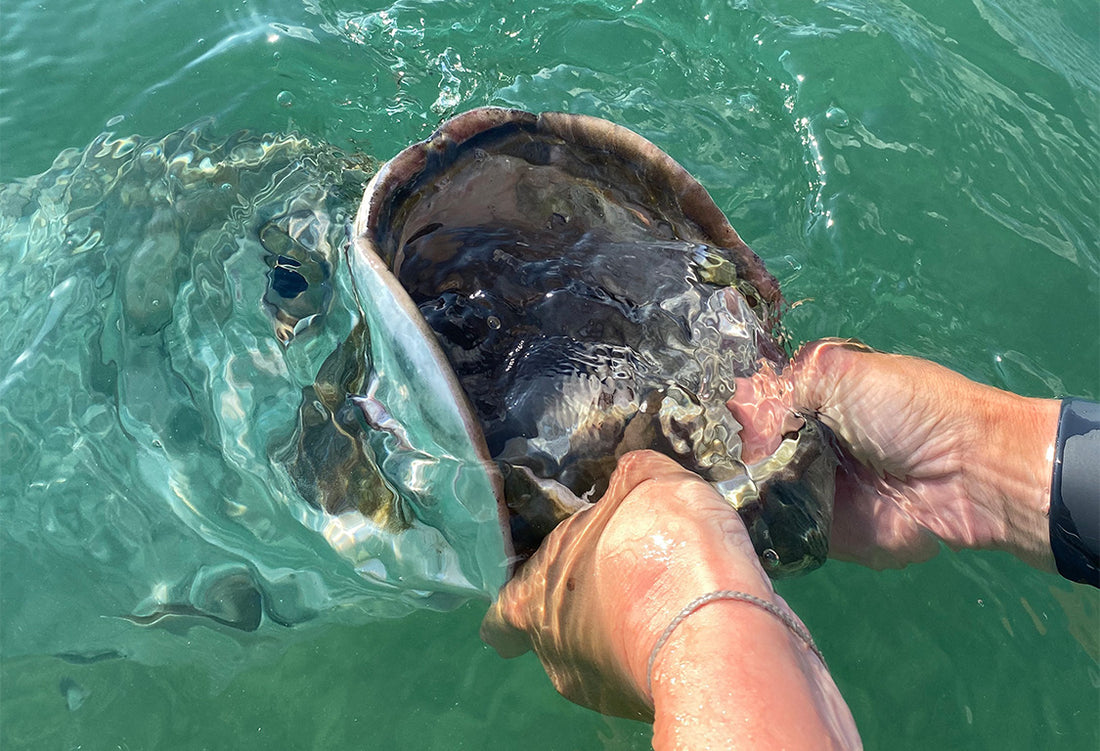
The air is muggy and US1 is packed with Michigan plates, which means that big tarpon are swimming on the ocean.
Anglers from all over the country and the world join in tarpon worship in the couple of months they make their migration south, and for the lucky few that get a chance to intercept them, lifelong memories await. The Florida Keys is a place like no other, and shooting your shot at oceanside tarpon is one of those things every angler should try their hand at, at some point in their angling career. From conversations with some guide friends, I have compiled a list of three major tips that will improve your tarpon fishing this Spring.
Don’t worry, there’s still time to schedule a lesson to work on your double haul!!

Line Management
Taking care of your fly line is one of the most important parts of the connection, because without an organized system of maintaining a smooth, tangle-free line, hooking up to a tarpon can get chaotic quickly. Some people use different equipment like Carbon Marine’s Linehut, a Draginfly line mat, or if their skiff allows, a casting cage. All are worthwhile pieces of gear to stay connected to that fish, but without staying tight to your fly line, all of the work kind of goes out the window. Remember to keep a careful watch on the health of your fly line, which depends on a freshwater rinse at the end of the day, and in between fishing days, line treatment with Rio's Agent X, Umpqua's Glide, or Loon's Fly Line Cleaner.
Communication
Talking to your guide, or whoever you are fishing with, is vital to success. If you are coming down to the Keys as a wade-only fresh or saltwater angler, getting on a skiff is somewhat of a foreign concept. There are a few verbal and non-verbal cues that anglers can take into consideration when they are on a skiff with a guide. Being realistic with your guide about your expectations relating to your skill level will produce an awesome day. If you tell your guide you can cast just fine, and have never picked up a fly rod before, there will likely be some issues. If you tell your guide that you can see the fish he is calling out, and you have no idea where the fish are, you are depriving your guide of the ability to help you find the fish, and potentially put you in a better position to catch that fish. As someone who has asked all the dumb questions, there simply are none that are too ridiculous to ask your guide. Feel free to pick their brain, and be honest with your ability and experience!
Good Gear, Better Skills
It’s never a good idea to bring a knife to a gunfight, and considering the ability of the modern day fly rod, there is hardly a bad choice on the market. Taking a good rod, reel, and line into consideration, not much else can substitute for proper preparation. Practice casting to a specific target, on water, with one or two false casts. Practice taking a shot to the angler’s three o’clock, at twenty, forty, and sixty feet. Practice in the wind, and mix up your rod tip angles to beat the wind. Although there is lots of nice gear out there, none of it will catch the fish for you.

There is no substitute for time on the water, whether that is guided or unguided, so be patient, practice, and take notes out there - there is always something to learn. Good luck, and have fun!
-Joe

0 comments